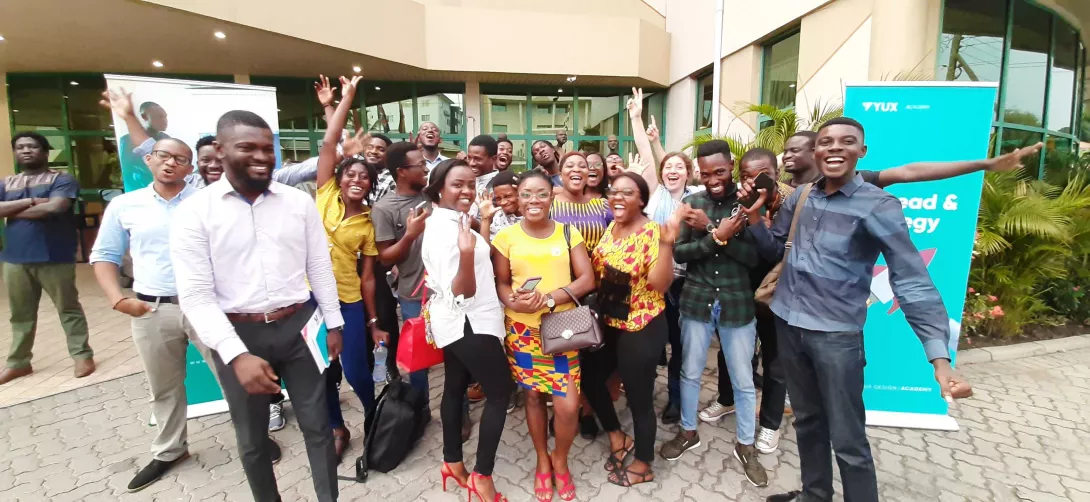
Hey guys, welcome to this new episode of an African Design Agency, a series of articles about growing a UX research company, from the perspective of our team members.
A few weeks ago we started by sharing what matters to our team when working with an African Company. Today, we’ll talk about supporting Africa's local UX and HCD communities.
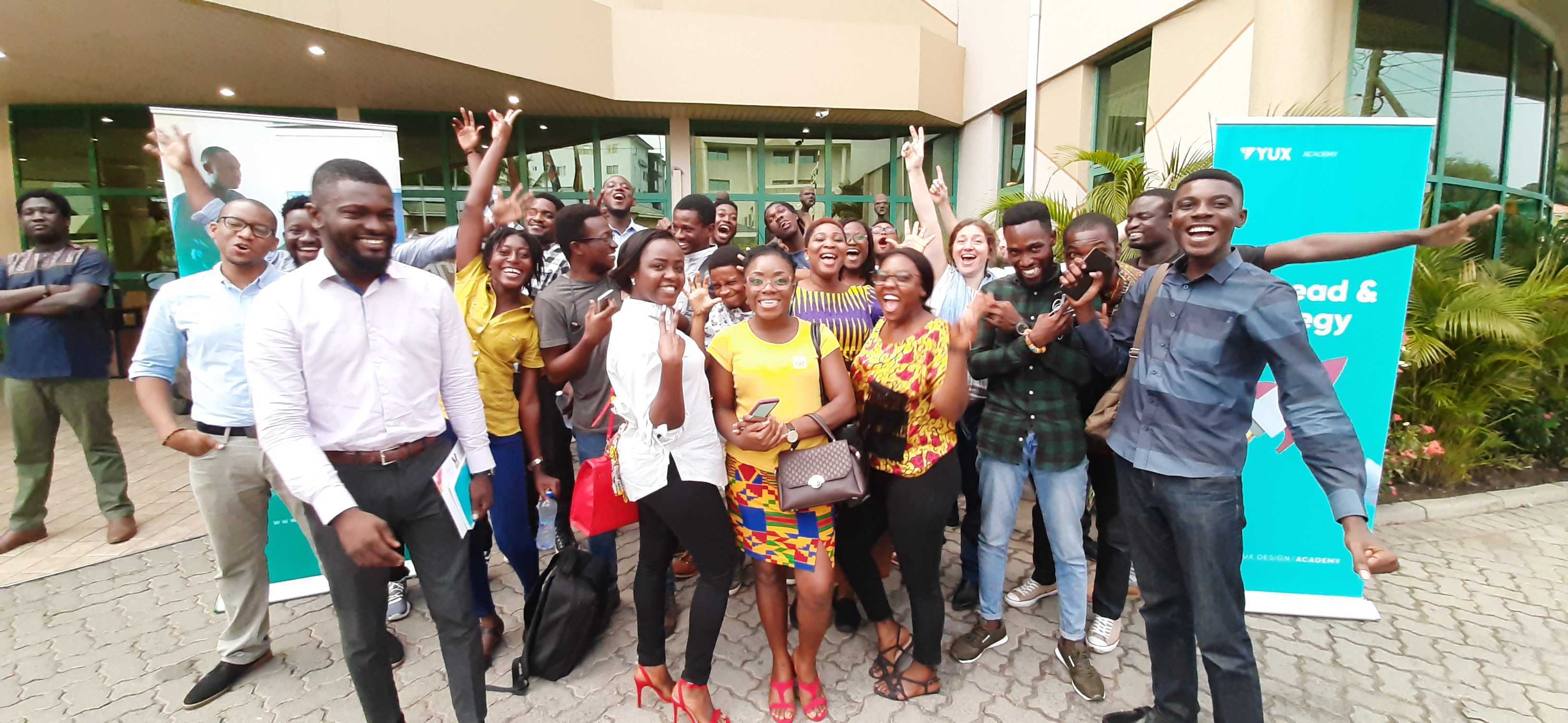
After the UX Lead Masterclass YUX and UX Ghana organized together in Accra
Why is supporting design communities in our DNA?
As you may know, we started in 2016, not as a business, but instead, we bootstrapped a community, training people for free on UX research and design. Today outside of our agency work and building LOOKA, we train hundreds of students and professionals in UX research and UX-UI design every year through a formal Academy with its dedicated team.
This DNA sticks with us to date, and that’s why every year we insert in our strategic company objectives the idea of working with local design communities, either for internal research projects like our flagship State of User Research or for Academy programs.
What’s our rationale today for keeping doing it?
But if we take a step back, we are now a for-profit business, growing quite fast (30 people in 2021, 45 as of now), which has more and more needs in terms of global expansion, admin and finance, marketing and communication and of course our priority, keeping and growing our talents. So what is our team thinking about the idea of investing in local communities?
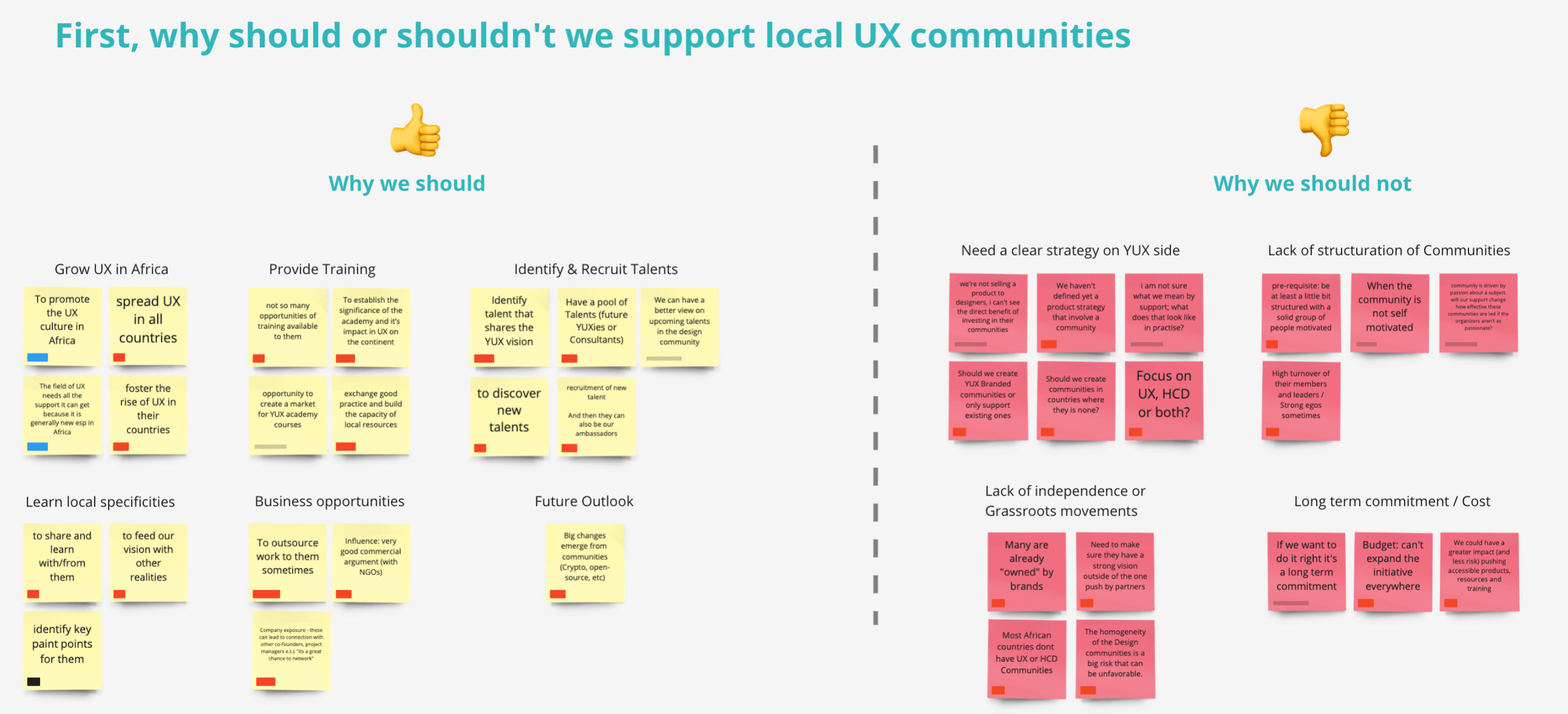
For many of us, we need to do it because it is part of our mission to grow UX and Human Centered Design in Africa. As Damilola from Nigeria rightfully pointed out, “The field of UX needs all the support it can get because it is generally new and especially in Africa”.
Second, It’s important because it’s a way for us to provide training early on and attract the best talents to fuel our ambitions. Aissatou, our research director from Senegal says we need to “exchange good practices and build the capacity of local resources”.
Outside of these two main aspects, working with local design groups helps us understand local contexts and design cultures, which is critical as are already in 6 countries and keep hiring African talents where they are. It can also help us outsource some extra work we could not take to local freelancers and the other way around, maybe get large projects that local freelancers could not take by themselves.
Finally, our co-founder Daniel rightfully pointed out that most of the impactful movements in the world were started first and sometimes still are communities - think of cryptocurrencies, social movements, open source development, etc - and we believe it’s part of our role to support progress at our level.
What are the main challenges communities face?
As you can see in the picture above, our team identified several breaks that can make supporting local UX groups a challenge, the main one being their lack of structuration, motivation, or high turnover in the leadership of communities. On the other hand, we also need a clear structure and direction on our side before engaging with them otherwise, we may not be consistent and create more confusion than really help. Also, several communities are already sponsored (owned?) by brands like Figma, Google, or others. We would definitely rather invest in groups that affirm a strong leadership and independence from any company (including ours), like for instance UX Ghana or UX Kitchen in Kenya.
What do they need to strive?
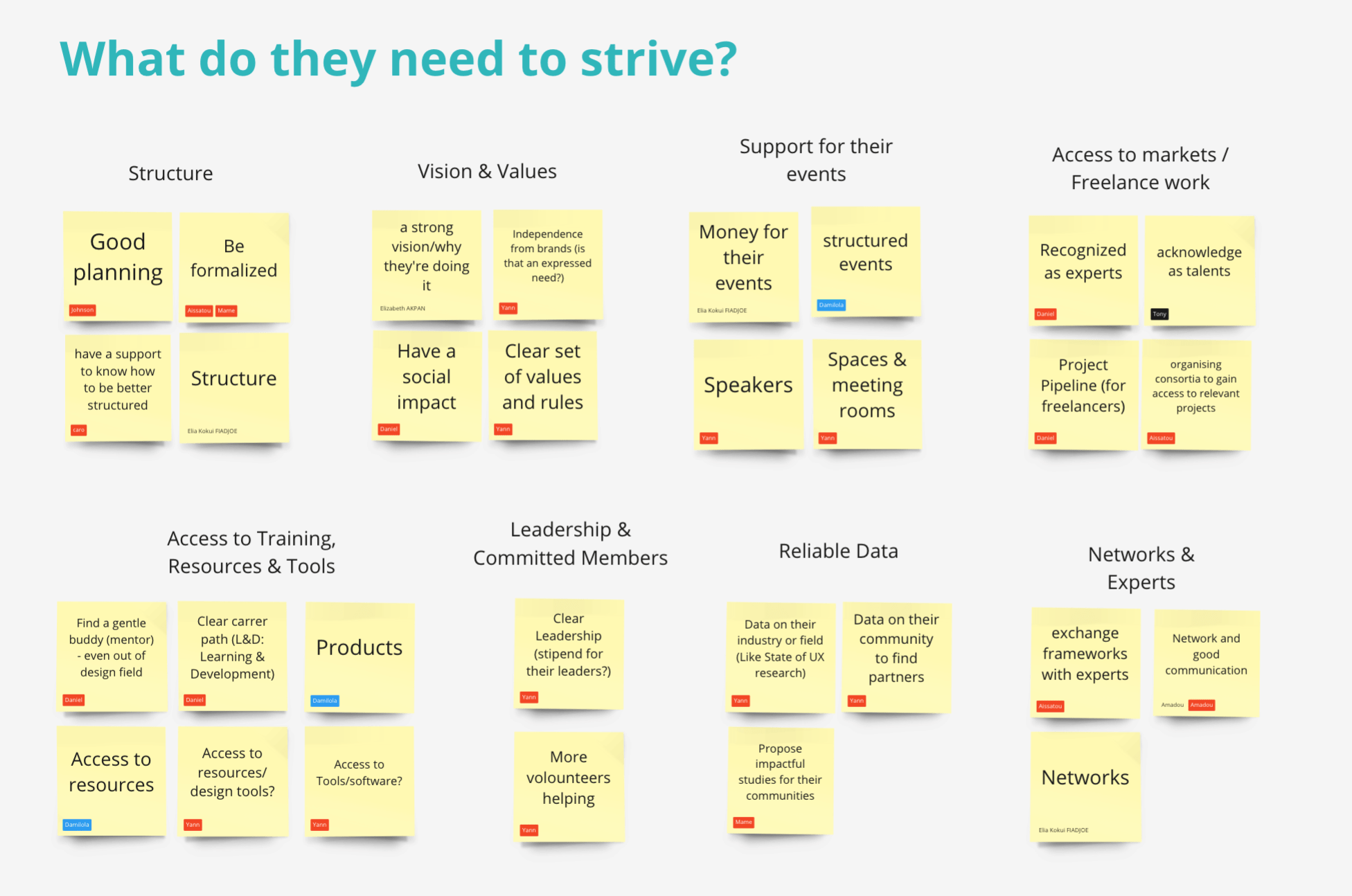
The board above is pretty straightforward, so have a look - but in a nutshell, our design community needs:
Training and access to design tools, templates, and software
structuration, solid leadership, and dedicated team members
a strong vision, positioning, and clear set of activities
Support for their events, mostly speakers and budget
Access to market and jobs for freelancers in their groups
Data on the industry and their community to better pitch partners
Network and connection with global expertise
What can a design agency like us do to help?
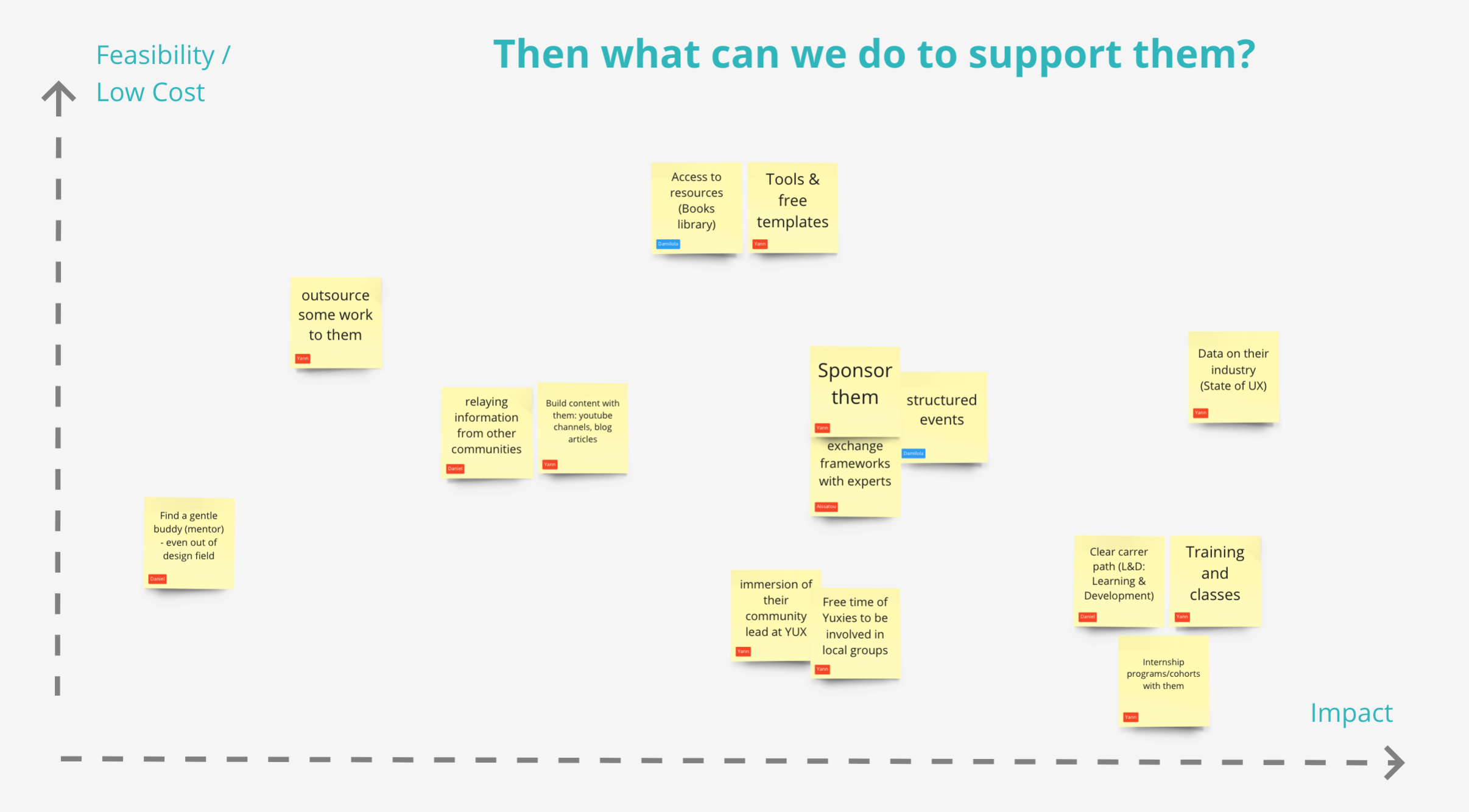
Then with the YUX team, we looked at the most impactful things we could do to support local UX and HCD groups, bearing in mind our limited resources and time availability. Here are the main items that came out:
Provide data on the industry - thing we started doing last year with the State of User Research (2022 edition on the way, stay tuned!) - the good thing is that even if we only do pan-African studies, we are able to extract data from each country and give them back to local groups, as we did with UX Ghana, People Who and UX Kitchen in Kenya, or Friends of Figma Lagos in Nigeria.
Give training, a clear path to career growth, and internships - we did quite a lot on that already with the YUX Academy, but I must admit that outside of UX Ghana, we have not been able to build solid programs with other communities - we should do better here.
Sponsor events and provide speakers - we did not do anything on that recently outside of our own (free) events and webinar - and we are open - send us your proposals!!
Free time for our guys to work with them - this one is more original - if you consider that local groups need dedicated resources and that it is not easy for most of us to have free time during the weekends, it could be useful to let some of our team members take time during their work hours to support activities.
Share resources like design methods, templates, etc - like we did a few months ago with UX Ghana by giving away the skills maps template we use to track the learning and growth of our designers and researchers
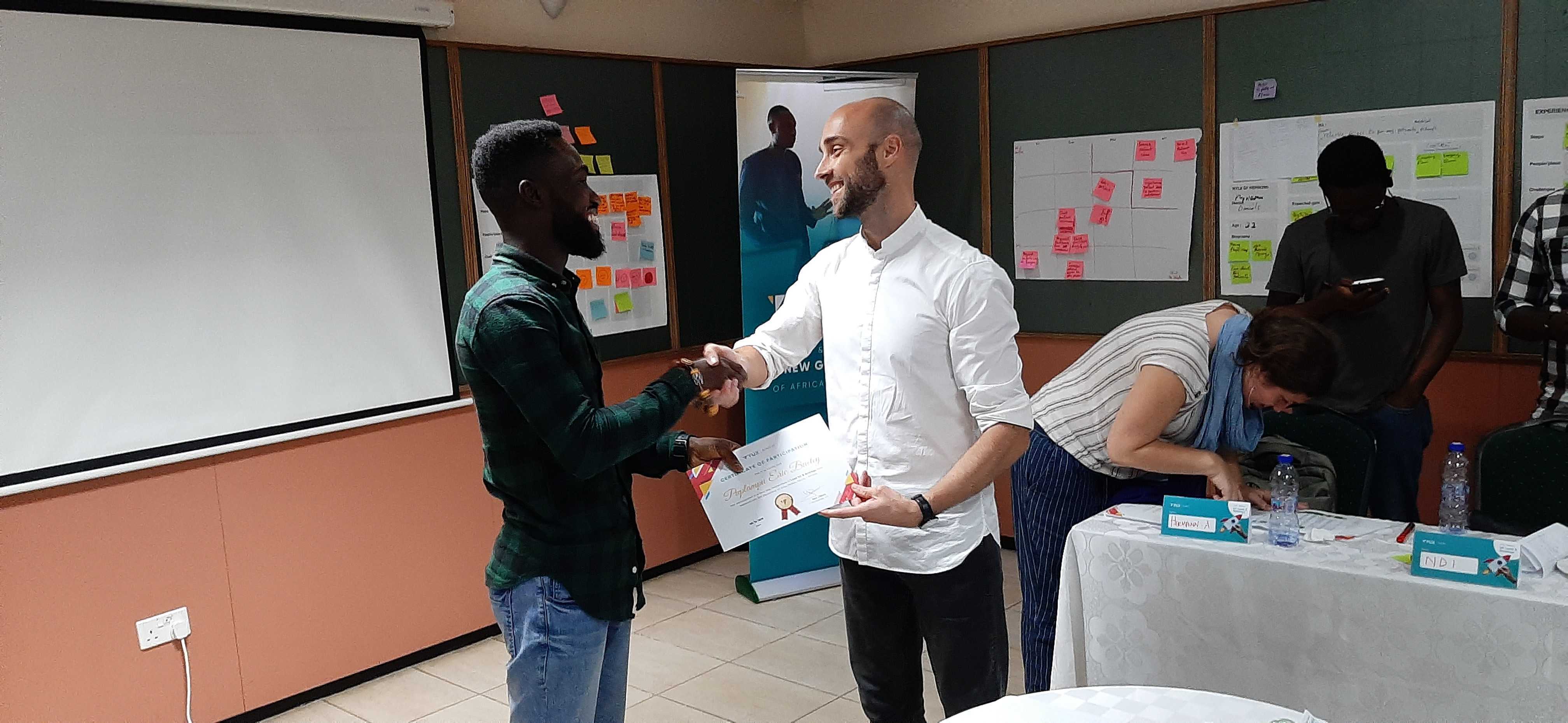
That’s pretty much it guys, thanks for reading and as usual, please give us your opinion and share feedback. See you soon to talk about building an African Design company!
